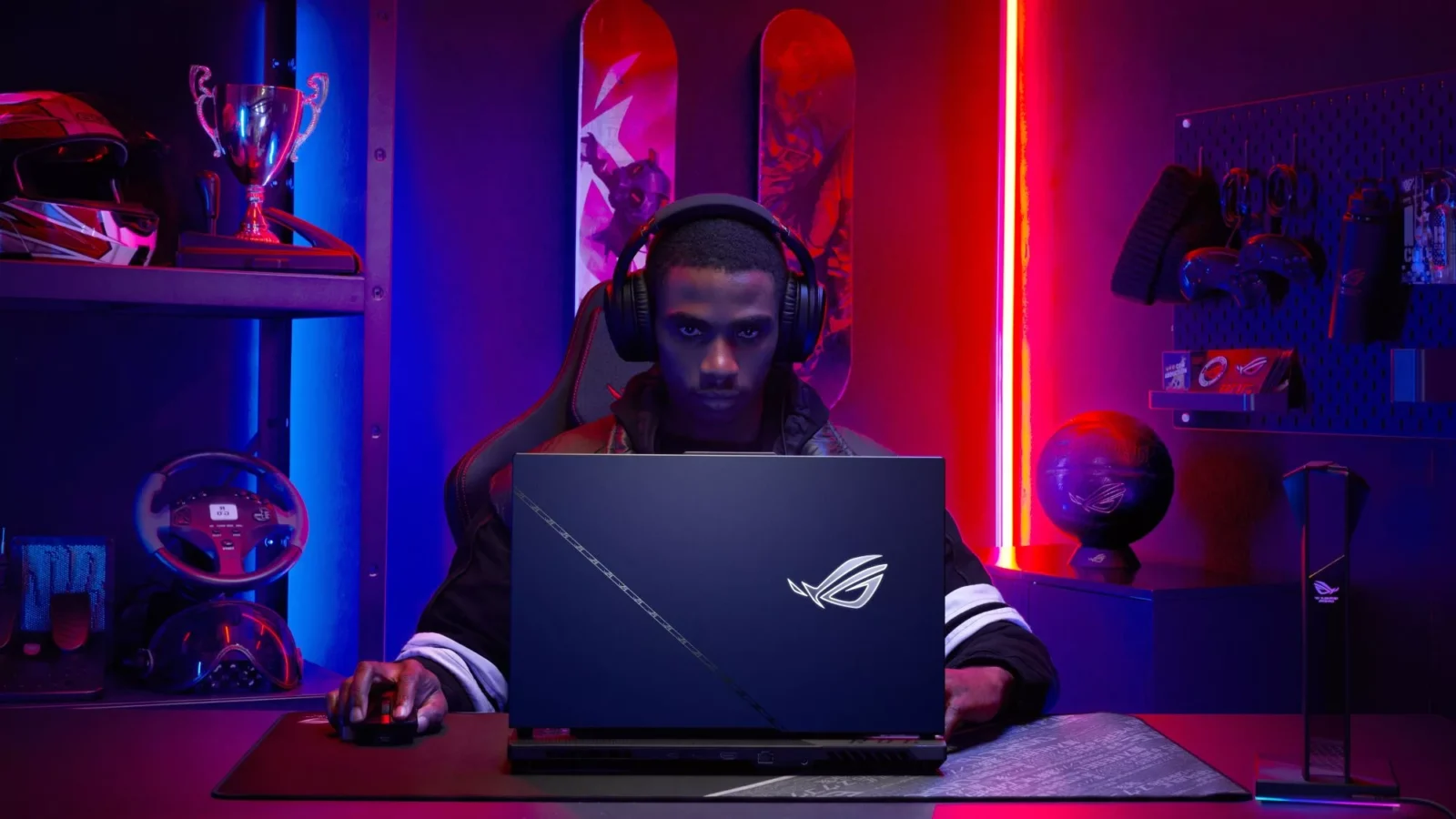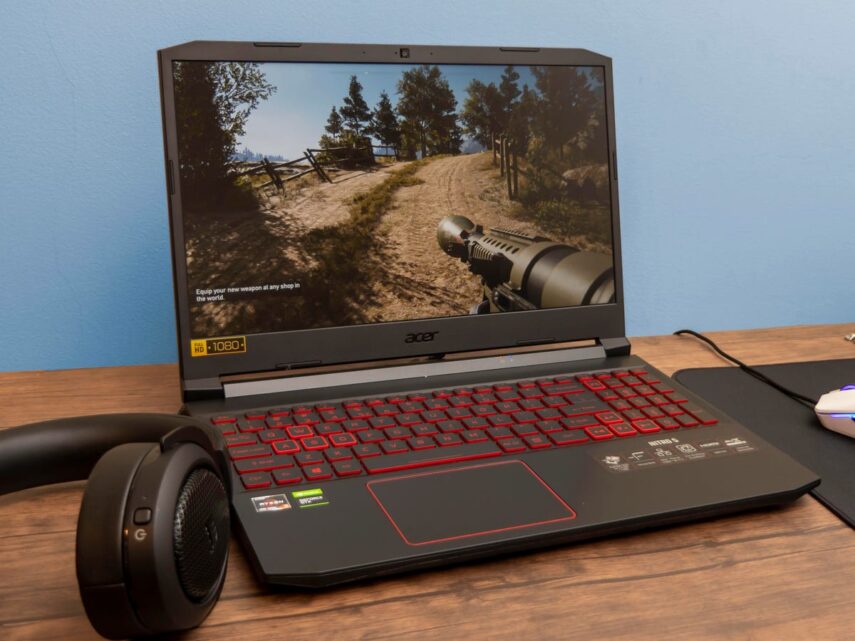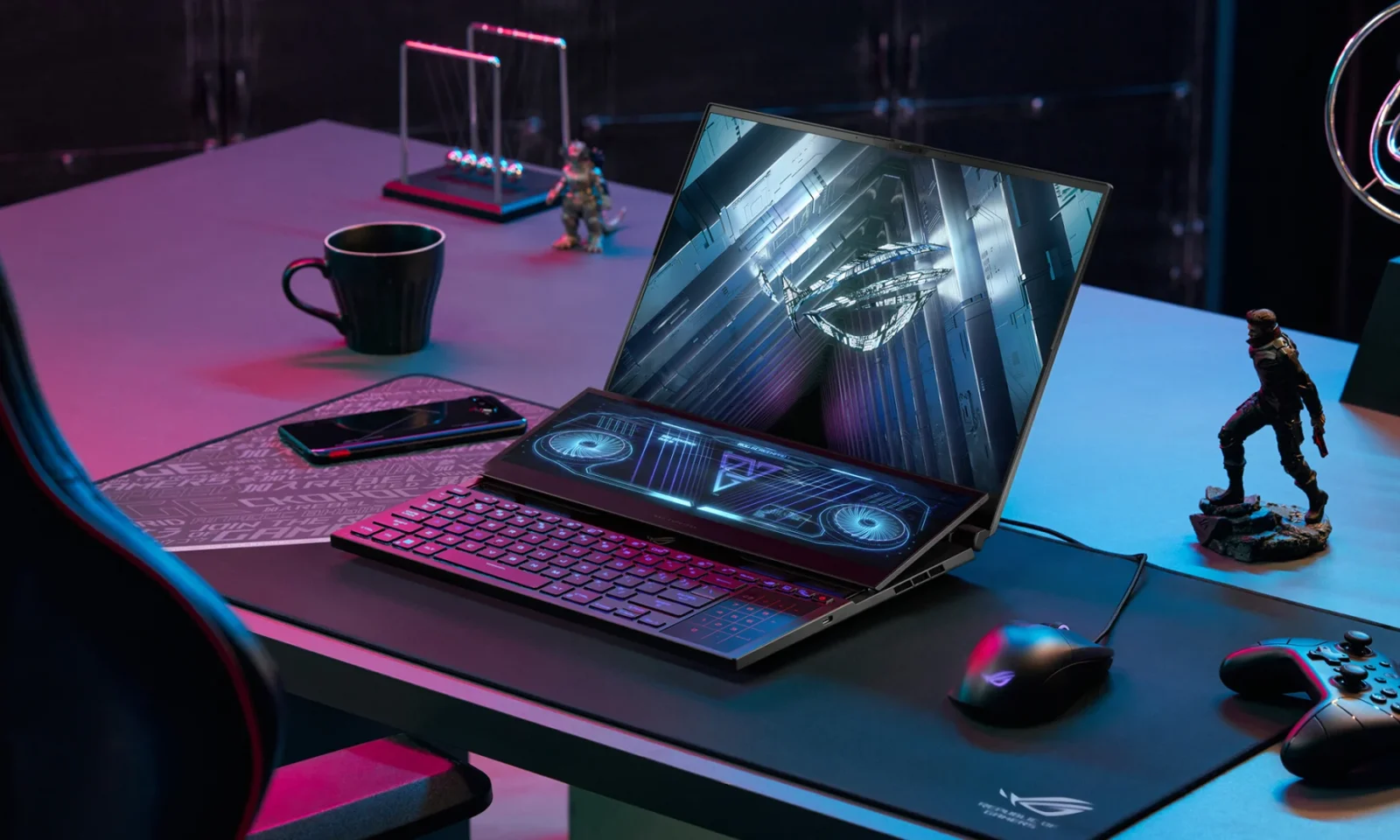Gaming laptops have gained immense popularity in recent years, offering a convenient way to enjoy high-end gaming on the go. However, they come with their fair share of drawbacks. In this article, we will explore the disadvantages of gaming laptops, shedding light on aspects that gamers and consumers need to consider when opting for a portable gaming solution.
If you’re in search of a gaming laptop with the best cooling to ensure extended gameplay without overheating issues, check out our top 9 picks by clicking the following link: Gaming Laptop With Best Cooling: 9 Top Picks For Extended Gameplay.
Heavy and Bulky
One of the most noticeable drawbacks of gaming laptops is their size and weight. These laptops are significantly bulkier and heavier compared to standard laptops. Carrying them around for extended periods can be tiring and impractical.
Limited Upgradeability

Unlike gaming desktops, laptops have limited upgrade options. Most gaming laptops come with soldered components, making it challenging to upgrade or replace key hardware like the graphics card or CPU. This restricts the longevity of the laptop.
Shorter Battery Life
Gaming laptops are notorious for their short battery life. The high-performance hardware required for gaming consumes a considerable amount of power, resulting in limited unplugged gaming time. Gamers often find themselves tethered to power outlets.
High Cost
Gaming laptops are generally more expensive than their desktop counterparts with similar specifications. The premium you pay for portability can strain your budget, and building a gaming desktop may offer better value for your money.
Overheating Issues

The powerful components in gaming laptops generate a significant amount of heat. Many gaming laptops struggle with adequate heat dissipation, leading to overheating problems. Over time, this can affect the laptop’s performance and longevity.
As we explore the evolution of gaming technology, uncover the drawbacks of gaming laptops in our comprehensive discussion on the development of gaming, from pixels to augmented realities.
Loud Fan Noise
In the quest to mitigate overheating issues, gaming laptops depend on powerful cooling systems, frequently leading to the side effect of generating noisy fans. The resulting loud fan noise can be not just distracting but also detrimental to the immersive gaming experience.
It’s a trade-off that gamers must contend with – maintaining optimal temperature conditions while enduring the audible intrusion, a factor to consider when deciding between gaming laptops and the noise-reduced environment of dedicated gaming desktops.
Limited Portability
Despite the intent of gaming laptops to provide portability, their substantial size and weight can counteract this advantage. These laptops might not align with the needs of travelers or individuals seeking a highly mobile computing solution.
The physical dimensions and heft of gaming laptops can be a hindrance for those on the move or in need of a lightweight and easily transportable device.
Gaming Laptops vs. Desktops
When comparing gaming laptops to desktops, the shortcomings of the former become evident. Desktops boast superior hardware components, a more straightforward upgrade path, and superior cooling mechanisms.
In contrast, gaming laptops, while offering portability, often fall behind in terms of raw power, limiting their potential for high-end gaming and future-proofing. This places desktops at an advantage, particularly for gamers who prioritize performance and adaptability.
As we explore the evolving landscape of the gaming industry, take a moment to consider the impact of contemporary remakes on tomorrow’s gaming experience, bridging the gap in our examination of the disadvantages of gaming laptops.
Lack of Ergonomics
Gaming laptops often fall short in terms of ergonomic features compared to dedicated gaming setups, which typically include comfortable chairs, multiple displays, and customizable keyboards. The absence of these ergonomic elements can result in discomfort, especially during prolonged gaming sessions.
Gamers who opt for laptops may experience physical strain due to less-than-ideal seating, limited screen space, and the absence of specialized gaming keyboards. Consequently, while gaming laptops offer convenience and portability, users should be prepared to address potential ergonomic challenges to maintain gaming comfort during extended gameplay.
Reduced Lifespan
Gaming laptops typically exhibit a relatively shorter lifespan in contrast to their desktop counterparts. This discrepancy primarily arises from the inherent constraints associated with their hardware and the limited potential for comprehensive upgrades.
The inability to perform extensive hardware upgrades, a key feature available with gaming desktops, hampers a gaming laptop’s capacity to adapt and endure over the long term. Consequently, users must be mindful of this limitation when making their choice between a gaming laptop and a desktop, taking into account their gaming needs, preferences, and plans for the future.
Limited Software Compatibility

Certain games and software applications might encounter compatibility challenges when running on gaming laptops, predominantly stemming from their distinctive hardware configurations. These compatibility issues can give rise to vexing experiences for users, leading to frustration and inconvenience.
It’s vital for individuals seeking to use specific software or play particular games to verify their compatibility with the hardware of their gaming laptop. This proactive approach can help users avoid the headaches associated with software that may not run smoothly or optimally on their gaming laptops, ensuring a smoother and more enjoyable experience.
Inadequate Cooling Systems
Numerous gaming laptops grapple with the challenge of effectively managing their internal temperatures, which, in the long run, can spell trouble for the hardware’s longevity. The issue of overheating represents a noteworthy disadvantage, as it has the potential to result in expensive repair costs.
The risk of hardware components being damaged due to excessive heat is a cause for concern, making it imperative for gamers to take proactive measures to mitigate overheating.
By employing cooling solutions, optimizing in-game settings, and ensuring proper ventilation, gamers can safeguard their investment and prolong the lifespan of their gaming laptop while avoiding the associated repair expenses.
Display and Resolution
Gaming laptops often find themselves making trade-offs when it comes to display quality and resolution in contrast to their dedicated gaming monitor counterparts. These compromises can have a notable impact on the overall gaming experience, especially when you’re immersed in graphics-intensive games.
Gaming laptops typically come with screens that, while still decent, might not match the visual prowess of gaming monitors designed explicitly for optimal graphics performance.
The result can be slightly reduced sharpness and visual detail, potentially impacting the immersive quality of gameplay, making it important for gamers to choose wisely based on their specific needs and preferences.
As you explore the drawbacks of gaming laptops, it’s essential to consider the broader landscape of the gaming industry, including key insights on major trends from an investor’s perspective.
Conclusion

In conclusion, gaming laptops offer portability and convenience, but they come with a set of disadvantages, including their size, limited upgradeability, short battery life, high cost, and overheating issues. Gamers should carefully weigh these drawbacks against the benefits before making a purchasing decision.
Related Posts:
- Home-Based Business Advantages and Disadvantages -…
- Advantages and Disadvantages of Using a Free VPN in 2024
- What Are Some of the Disadvantages of Vibration Machines?
- 10 Best CPU For Gaming 2024 - Top Processor Options…
- How to Choose a Motherboard for Gaming? 2024 - What…
- 15 Best RAM for Gaming 2024 - Improve Your Video…







